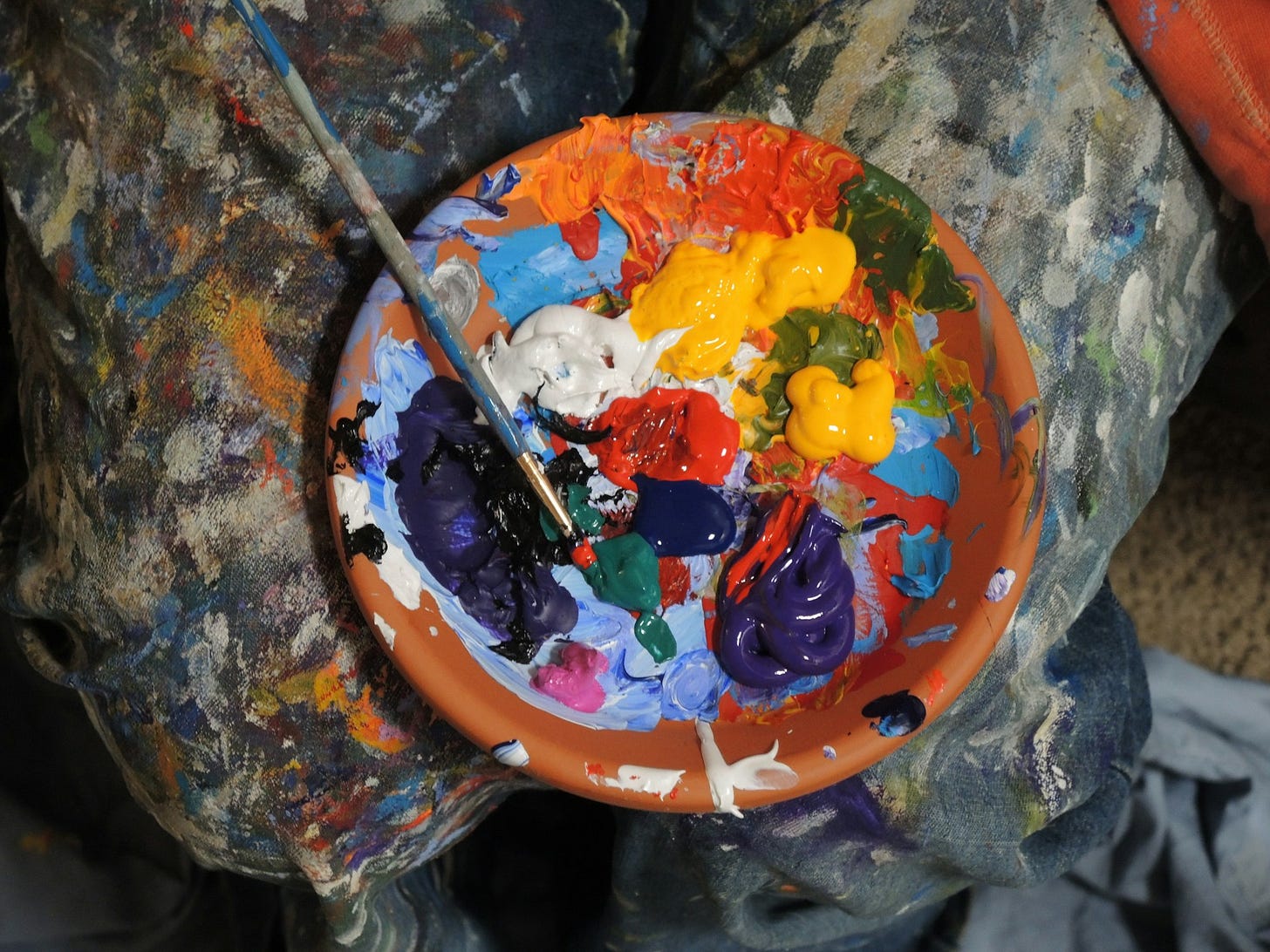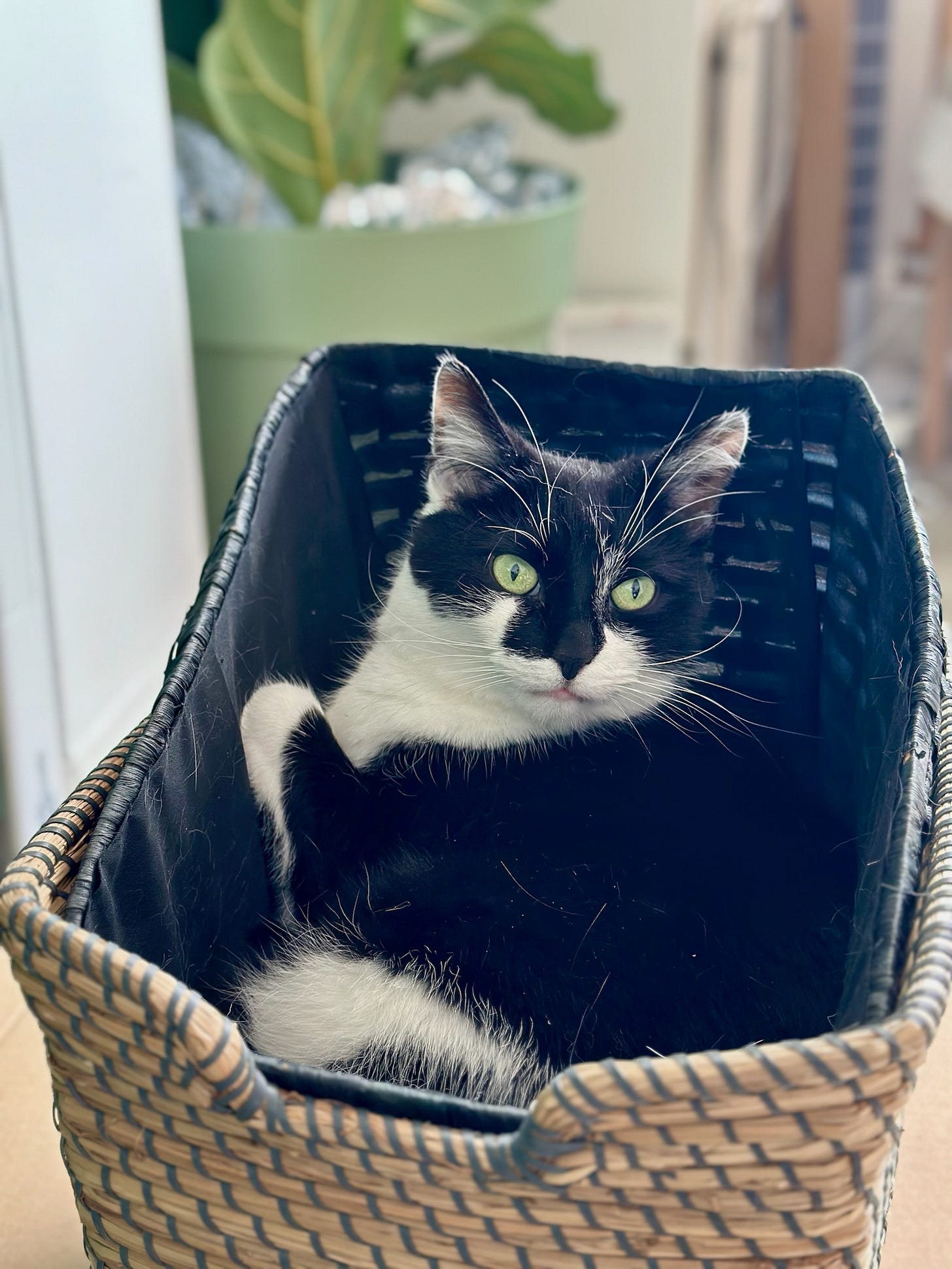🤯 Things I can't stop thinking about (part 2)
The "we're all flawed" edition (aka snippets from my 'How to Live' file)
Welcome to Life after Trauma; I’m Clare Egan. For the last few months, we’ve been exploring the intersection of creativity and recovery through The Artist’s Way. This is our final rest & integration week, and I’m taking the opportunitiy to share something a little different. One of my favourite posts from last year was a round-up of extracts from my ‘How to Live’ file. According to my latest reader survey, you guys enjoyed it too! 🙃
Here’s how I introduced it back then:
NineTen years ago, I quit my former career as a non-profit Communications Manager and decided to make my recovery my number one priority. By that point, I’d spent years trying to come to terms with the sexual abuse I experienced as a child and the sudden death of my mother in a car accident when I was 19. I’d recently been diagnosed with Complex-PTSD and was really struggling to manage my life.I’ve recovered a lot since then. I made some big changes in my life: Quitting my job. Coming out. Moving house. But the small things I did (like getting a slow cooker and learning to rest) were some of the most impactful. Many of those ideas came from a computer document labeled ‘How to Live’. I drop all the little snippets of life advice I stumble upon in there. It’s a rich document that begins with the importance of making the invisible visible and Helen Mirren’s advice that young women should say “fuck off” more and concludes with this nugget of relationship advice from Cup of Jo: “Do whatever will cause the least amount of resentment between the two of you.”
I’m always adding to it, always searching for tidbits of wisdom that might make my life better. Whether it’s a reframe of something I always thought I understood or a one-liner about what really matters in life, I like to think the ‘How to Live’ document lives up to its name.
Over the next few months, I’d like to share a few more extracts from my ‘How to Live’ file, starting with this selection on writing, loneliness, friendship and what it means to be flawed. I hope you enjoy them!
Africa Brooke in conversation with
“We’re all flawed, wrong, and imperfect and it’s only a matter of time before we’re exposed. It’s an idea that’s both terrifying and liberating. If no one is perfect, you don’t have to be perfect either. You can still find belonging.”
“If you cannot be honest on the page, then don't write it right now. Write something else.” - in conversation with
on ‘Building the friendships we want’
“There was a popular TikTok making the rounds the other week where a woman discusses how, due to capitalism and an obsession with prioritizing our productivity, we have moved away from the “small favors economy.” Basically, in past generations it was more normalized to rely on other people in our community to help us out. Asking for a ride to the airport wasn’t a great offense, but an opportunity to show someone that you cared about them. But as independence has become more and more glorified (much to my chagrin), people are less likely to ask other people to help them out. This then creates a sort of limit on how close we are able to get to the people we care so much about.”
Soraya Chemaly in conversation with about her latest book, The Resilience Myth
“Optimism, like most things, has its limits. When it doesn’t, it tilts into delusion or even endangers people. Women in abusive relationships, for example, are often encouraged to stay with the person hurting them in the optimistic hope that “things will get better,” or “he’s not all bad,” or “you can help him change.” More often than not, that is definitely harmful advice.”
on what to do when you feel overwhelmed
“Some of the best advice I heard in those first weeks of parenthood was to spend less time debating what to do and instead simply ask myself what I could do—just one idea—then try that.”
“When it comes to art, what you feel, is infinitely more important than what you know.” - (source)

quoting Kurt Vonnegut on why parenting is so exhausting and lonely
“The isolation of modern work life and family life—harried, getting out the door, hustling kids to school, working in offices and cubicles, only communicating via Slack and being reprimanded for “not working,” to dinner-bed-bath-cleanup-tv-sleep—we’re not living in the communities of support that we all need. And the cause of fights in marriage? It turns out, he surmises, “what they’re really yelling at each other about is loneliness.”
If you enjoyed this essay, you might also appreciate:
💕 Did you enjoy this piece? Tap the heart to help spread the word.
💬 In the comments, I’d love you to read about the nuggets of wisdom that have shaped the way you live. What do you think about all the time? And how has it influenced the way you live?









"We're all flawed and it's only a matter of time before we're all exposed" struck home with me today, Clare!